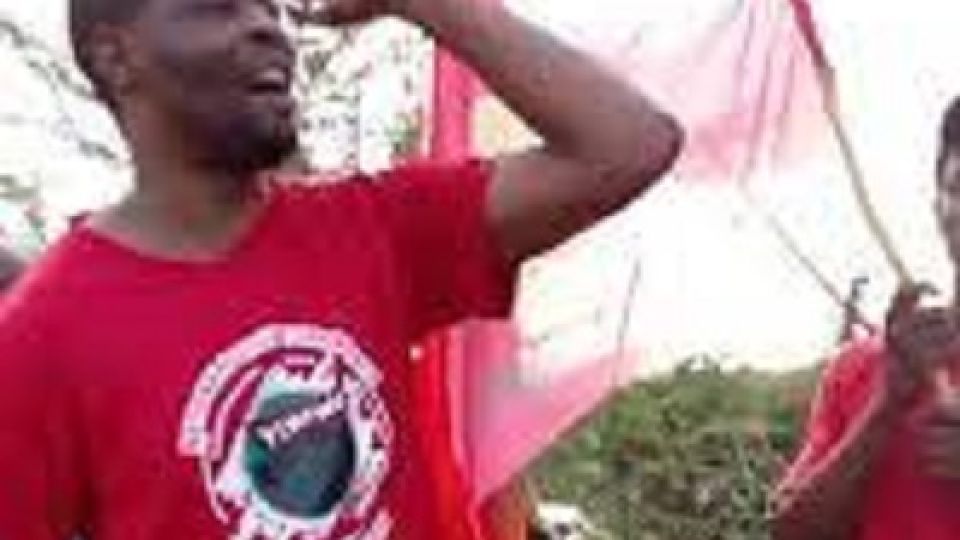from SAMBULO DLAMINI in Mbabane, Eswatini
Swaziland Bureau
MBABANE, (CAJ News) – THE reopening of traffic violation charges against an opposition politician is dismissed as a ploy by the King Mswati III regime to frustrate critics ahead of elections in Eswatini.
Charges have been resuscitated against Mxolisi Ngcamphalala, Deputy General Secretary of the Communist Party of Swaziland (CPS).
He is also the Deputy Secretary General of the Swaziland National Association of Teachers (SNAT).
Ngcamphalala’s charges border around allegations of jaywalking, which is defined as crossing or walking in the street or road unlawfully or without regard for approaching traffic.
He was first charged in January 2019, while walking towards a meeting of his union. He was charged together with another CPS leader, the now late Njabulo Dlamini, who at the time was the CPS International Secretary.
They were on their way to a SNAT meeting, which was expected to resolve the question of a nationwide uprising against the King Mswati III regime.
CPS noted the resuscitation of the traffic charge takes place in the context of renewed attacks against the trade union movement.
SNAT President, Mbongwa Dlamini, is one of the prime targets of the regime for his trade union work, according to the party.
“The CPS stands by its Deputy General Secretary, as well as the SNAT President,” Thabo Kunene, CPS General Secretary stated.
“The regime has attacked the SNAT leadership intending to suppress and crush the union,” he added.
Kunene reiterated that authorities were desperate to hold undemocratic elections, hence had sought to attack the CPS and the working-class movement by arresting the movement’s leaders.
The main targets in this instance are teachers and transport workers, Dlamini alleged.
The House of Assembly elections are set for September 29. Voter registration is ongoing until June 14.
Eswatini, formerly Swaziland, is an absolute monarchy, the only such system existing in Africa.
All executive, legislative and judicial powers rest with the monarchy.
In 1973, five years after independence, King Sobhuza II suspended the constitution and banned all political parties.
The kingdom has faced its worst protests since 2021.
State security are accused of killing and assaulting demonstrators.
CPS remains defiant.
“The CPS calls for unity among workers – and the working class at large – for the total overthrow of the tinkhundla autocracy,” Dlamini said.
– CAJ News

